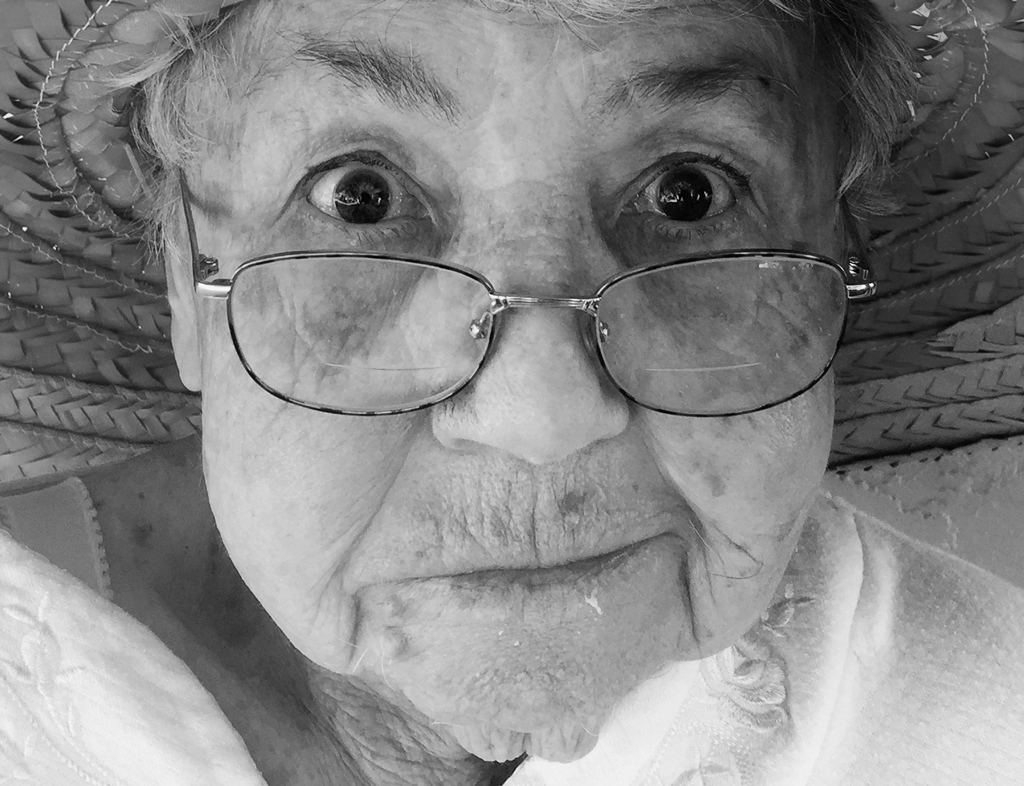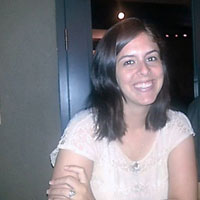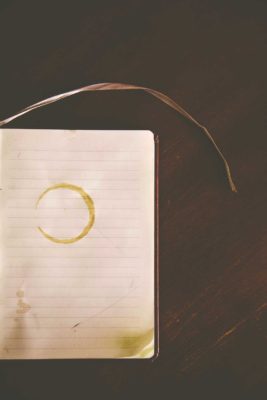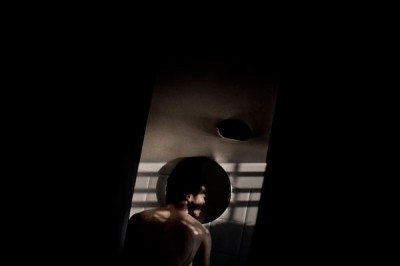
Taylor Kobran
A DIFFICULT WOMAN
Well, it should come as no shock to you, I’m sure, that on more than one occasion I have been told I am a difficult woman.
If you’d been around longer, you would have found pretty quick that that’d be the truth, honey. You would have been embarrassed of me, like your little brothers, but maybe a little proud too, because us girls have to stick together.
But, just so you believe me, let me give you an example:
After I was told that my second husband, Peter, had died, I slapped the nurse who offered to call in a goddamn grief counselor. My heart could have burst wide open with rage. As I walked out of the hospital, real quick before security could reach me, my hand was all raw and stinging with something a bit like triumph.
It was only later that the shame caught up, which is the way it usually goes with me.
◊
Look how I lie here, my lips cracked and thin, my face worn like paper. See how they’ve taken from my goddamn body until there was nothing left. I always knew it would have been different with you, honey. Daughters are different than sons, they don’t require the same vengeance. They are just a piece of a mother’s soul, alive and in the flesh and wandering out in the world.
When he was twenty-three and just graduated from college, your one brother Jeremy sent me an envelope from the other side of the country addressed to: Ms. Francine (Franny) Krause Waley née Roth. Inside was a detailed listing of his therapy bills.
What I really found funny was what he had written, in big block letters, just under the seal: Charges for damages within. Pound of flesh will do.
Let’s speak of happier things.
But.
Your littlest brother Derick has become a priest, and it is one of my gravest disappointments. Oy vey iz mir, my poor mother should be rolling over in her grave.
He was only nineteen when he joined the seminary. I cried out, “But you’re not even Catholic! You had a bris, for Chrissakes. Don’t you remember?”
He did not, in fact, remember. He was only eight days old at the time, but that, I told him, wasn’t the point.
They don’t know about you, not even Jeremy. You both share the same father, but there is only Jeremy in those photographs with Krause, back when we lived in Philadelphia, his chubby cheeks and that serious look always on his face. There are no pictures of you. I don’t think I could have endured it if there were.
Sometimes I want to tell your brothers, “But wait! It’s true! In fact, I did have a daughter. Ha ha, your old Ma has one more surprise left for you nudniks!”
But I will not tell them. I cannot.
And here is this goddamned crocheted blanket the nurse put over me that is so itchy against my skin I could scream.
You were there and then you were gone just as suddenly, not even a day old, and that was the beginning of the end between me and your father. Don’t blame yourself. Things happen.
And it’s true, we had enough left in the old tank to make Jeremy just a year and a half after you left us.
I met your father when I was eighteen, waitressing at a diner in Newark, just after high school. Krause was the boyfriend of another waitress, Charlene, who I used to goof around with on slow shifts, blowing spit balls with straws and sticking wads of chewing gum underneath the counters, all things we’d have to clean up ourselves sooner or later. We were silly girls, but Charlene always grabbed money out of the tip jar when she thought no one was looking, so I didn’t feel too guilty about stealing your father away from her.
Everyone called your father by his last name, pronounced like “Cross.” He was raised pretty strict, Shabbos every week and kept kosher, so I’m sure he didn’t appreciate that reference.
He didn’t appreciate a lot about me.
It’s too warm in here, don’t you think they could open a goddamn window every once in a while?
I’m thirsty, but the nurse in this godforsaken facility has only left me some lukewarm water, and I can see little tiny particles floating around in it like the glass was not fully cleaned, and so I would rather wither and dry up than drink that.
I dreamed of Paris, a place all white and fresh, sunlight streaming in through the walls, a little balcony, the whole town smelling like fresh bread.
Your father never took me there. To be fair, I had never told him I wanted to go, but.
I am a bitter old woman. Shouldn’t I be sorry, at this point? You’d think.
Still.
When he would come home, I’d be so angry, holding a crying baby Jeremy, his diaper wet and his face so very pink, and I would say, “You don’t appreciate me.”
Honey, I can’t lie that your father had many faults. I once listed them all on a scrap of paper.
Let me rummage around here in my bedside table, I’m sure I still have it.
No matter. I remember them all. They include:
His drinking,
His temper,
His ignorance,
His late-night returns where he came to our bedroom with his eyes shifting anywhere but toward my face,
His continued refusal to put down the toilet seat after he was finished, as if he were raised in a barn,
His skill at making the tears burn as they spilled from my eyes,
His tendency to look around at me and at his son as if we were people he did not quite recognize,
His snoring,
His habit of chewing with his goddamned mouth open so that a person could feel absolutely nauseated just from the sound alone.
But, sure, I loved him, the kind of fierce love you only have for the first person to kiss your kneecaps or to tuck you into bed after a long bout with the flu.
We never got the chance with you. That first birth, I left the maternity ward with my arms empty except for the white blanket I had planned on wrapping you in, but when Jeremy first came home from the hospital after he was born, your father and I used to sneak into his bedroom together just to make sure his tiny chest was still rising and falling, to hear his breath mix out in the air with the breath coming from both our own mouths, creating such a song of our little family.
I slapped Krause once, but he didn’t even move. I remember feeling my own anger running through my body like snake venom, and I wished I could slice open my veins and infect him with it, but I doubted he would look at me even then.
He didn’t even protest when I told him I was taking Jeremy and moving to Hoboken.
The bastard.
This room is too goddamned white, hasn’t anybody around here ever heard of a color, for Chrissakes?
Jeremy never asked me about his father. You would have been different. I knew from the instant I looked into your dark, curious eyes.
I think you would have liked your little brother Derick. When he was eight, he asked me once why his brother had a different last name. I feel bad now, but my in-laws were coming to town for Thanksgiving, and I’d been busy figuring out how to stuff a turkey for the first time. So goddamned slimy.
Anyway, I told him that it was because Jeremy had been dropped off at our doorstep by another family when he was a baby. “There was a note that said they’d be coming along in a few years to take him back,” I told him. “He’s what, thirteen, it’ll probably be any day now. So get your goodbyes in, buddy boy.”
I’m terrible.
But listen to me, even now, all these years later, cackling away.
Sometimes I feel like I’m the only one who finds me funny. When I met Peter, after he accidentally crashed his shopping cart into mine at the grocery store, he apologized so profusely that I was absolutely forced to reach down into my cart, grab the nearest roast chicken I had picked up for dinner, and say, “No harm, no fowl, sir.”
When he smiled, I knew it wasn’t because he found me funny.
The light is falling in through the window blinds real bright. Burns my eyes ’till they’re all wet and runny.
I would have loved to have heard you laugh.
Peter told me he loved me every morning and then got mortally offended if I was too groggy to say it back. I loved him, but every once in a while, I just wanted my goddamn sleep.
Peter was a little older than me, but he was kind to both boys, had clean fingernails. He bought me velvet dresses just because.
I never told him about Paris. Only you.
Peter’s parents had a cabin in the Poconos, and we used to visit it every summer. Once, while Peter and the boys were out on the lake, I took the car and drove to the Five and Dime and bought some bright yellow sandals with pink buckles and hair dye, platinum blonde.
I so dreamed of driving until I slipped off the edge of every goddamn thing.
Instead, I wrapped the box of hair dye in a plastic bag and slipped it under the driver’s seat, and drove back to the cabin. And when I got back, those little assholes made fun of me for wearing those ugly sandals. I got so mad I refused to cook them dinner.
Look at me, still seething, grinding my teeth until my jaw aches.
I was thirty-three when Peter died. Heart attack. Thirty-three and all alone with two little boys.
Things have not turned out like I expected when I was a child.
I wonder sometimes what you would have thought of my mother. It was like she had been tamed for her whole life. I was determined not to be tamed.
Once, when I was a girl, I cut my own hair with my mother’s sewing scissors because I had seen a pretty woman with a bob in a magazine. It didn’t turn out very well at all, and I tried to hide the evidence, but my father found all the bits of hair I’d stuffed between the couch cushions. After he whipped me, he wouldn’t let my mother fix my hair, instead made me live out my days with a lopsided cut until my hair grew long enough to pull up.
You know what Derick says? Forgiveness is bliss. “It makes you feel free, Mommy,” he says. He calls this place every night. Sometimes I think he calls just to make sure I’m still alive.
Just like his father with that mishegas. I can’t tell you how irritating it is.
He says to me, “Forgiveness is a gift that holds more than you could ever imagine.”
Doesn’t he sound like a goddamn fortune cookie?
You know, Derick paid for this place, but I don’t like my nurse, she smells like smoke, and I once bit her on the arm when she tried to give me a bath, then pretended like I was having an episode so she wouldn’t sue.
Once, Jeremy wrote and asked why I never hugged him when he cried as a child. I wrote back, joked that it was because he was always so slobbery and I didn’t want to get my blouses wet.
He didn’t respond.
I think of you, how you left this world just hours after you left my body. Shouldn’t I have kept you inside, where you were safe and kicking against me like the beating of a heart? I was so young. I only held your little body for a moment before they took you away. You felt so warm.
But what, I should tell your brother the truth? The truth that I had been afraid? Afraid to hug him, to hold him close to my heart, to feel him too firmly? No, I could never tell him any of this, not a single word. Wouldn’t I rather die first.
I am still considering putting it in my will that the next correspondence my first son will receive from my estate will be my obituary, but I don’t want to be dramatic.
And I can remember Jeremy coming home crying because the kids in junior high made fun of his crooked teeth since he needed braces so badly but there was no money for it, and so I wrote to Krause, mailed the letter to that little goddamn row house in Philadelphia we used to share, but it was eventually returned to sender, addressee unknown, and when little Jeremy bugged me about braces again, I finally told him to just deal with it because his weird teeth gave him character.
I’m not a terrible mother.
I taught Derick how to drive a car, even though my own license was suspended for too many parking tickets. And the only thing I said to Jeremy the time I picked him up from the police station after he got caught shoplifting was, “Next time pick me up a new tube of lipstick, will ya?”
You never got to resent me, got to blame me, like your brothers. You forever know me as your mother, your home. To you, I am only a nice, safe, warm thing.
I could have been someone important, right, honey? Even now, don’t I sound like I’m smart? I read a lot. I should have gone to college, should have done more than just take care of other people.
Two husbands was plenty.
I was at the emergency room reception desk for a time and saw all sorts of horrible stuff. I’d tell the boys over dinner about the man with his left eyeball hanging loose, the woman with the bone sticking straight from her arm, the little girl with the burns on the side of her face.
And wouldn’t Jeremy just eat up my stories, the only time he didn’t seem to absolutely hate me, and we would both just laugh at Derick, who would cover his ears with his chubby hands.
And then I got moved to the geriatric ward, which I found even more horrible than the ER. All those old people, moldy in their own skin, wasting away to nothing but beige slippers and wiry white hair.
Pot, meet kettle, etc.
When the time came, I wanted to throw myself off the bow of a ship, hang myself from a sycamore tree, wander into the highway during rush hour. My end had to be different than all those others, mine had to mean something more.
But.
Here I am, honey, lying on this bed, and the air has grown cold. It stings that my end is going to be like all the others.
Honey, I would have told you the story my mother used to whisper in my ear before I went to sleep as a child. She used to tell me about a little girl who loved a little boy who was a prince. Since she was poor, this prince never gave her the time of day. It was only until she intercepted a poisoned cherry meant for him that he noticed her at all, and by then, she was dead. The prince cried and threw a parade in the girl’s honor and then vowed never to marry.
Honey, I would have told you this story, but I would have let the goddamn prince swallow that cherry, every last deadly gulp, and I would have told you about the girl watching as his face turned blue and still, and I would have told you about the grim satisfaction she felt in that moment when she realized that she needed to let love go in order to live.
You never got to know what it was like to grow gray, to grow bent and crinkly. You never got to be anything. I would have taught you how to be a woman, honey, how to suck in your gut and paint on a happy face, how to hold life in your very cells, how to gnaw at the bone of your pain until you could swallow it in pieces, until it became something you could endure. I would have taught you how to be a better woman than me. No one would have ever called you difficult or even thought the goddamn word with you around.
Gotenu, but I made sure there was no shiva for you. I couldn’t stand the thought of sitting on the floor, tearing up cloth until my fingers bled, receiving all those visitors who would look at me with such goddamn pity in their eyes. Later, your father gave you a name so that we could find you in the world to come, but I didn’t want to know it, I told him I would kill him in his sleep if he told me what it was, and I meant it, and to this day, I still do.
There you are. I can feel your small weight next to me on the bed, and it’s like we haven’t spent a moment apart. Your eyes are so dark and beautiful. It’s a wonder that I even created you.
And goddamn it all, my life was more than that! More than just my sons, my husbands, more than being a mother and a wife! I had dreams, hopes, pictures in my mind that no one could imagine. Why this, even now at the end, why all these men who had made up my life? Sure, I had loved them all, but honey, does that have to consume everything I ever was, my whole entire being? Shouldn’t I have been more than just who I was to them?
But.
Who turned off the light? Stop that now. I’m wide awake.
 Taylor Kobran holds an MFA from Hollins University. Her work has been published in the Nottingham Review, Lunch Ticket, Emerge Literary Journal, the City Quill, and the Ilanot Review. She enjoys spending time with her dog and alphabetizing her overflowing bookcase. She lives in New Jersey.
Taylor Kobran holds an MFA from Hollins University. Her work has been published in the Nottingham Review, Lunch Ticket, Emerge Literary Journal, the City Quill, and the Ilanot Review. She enjoys spending time with her dog and alphabetizing her overflowing bookcase. She lives in New Jersey.
Image credit: Alex Harvey on Unsplash
Read more from Cleaver Magazine’s Issue #17.



